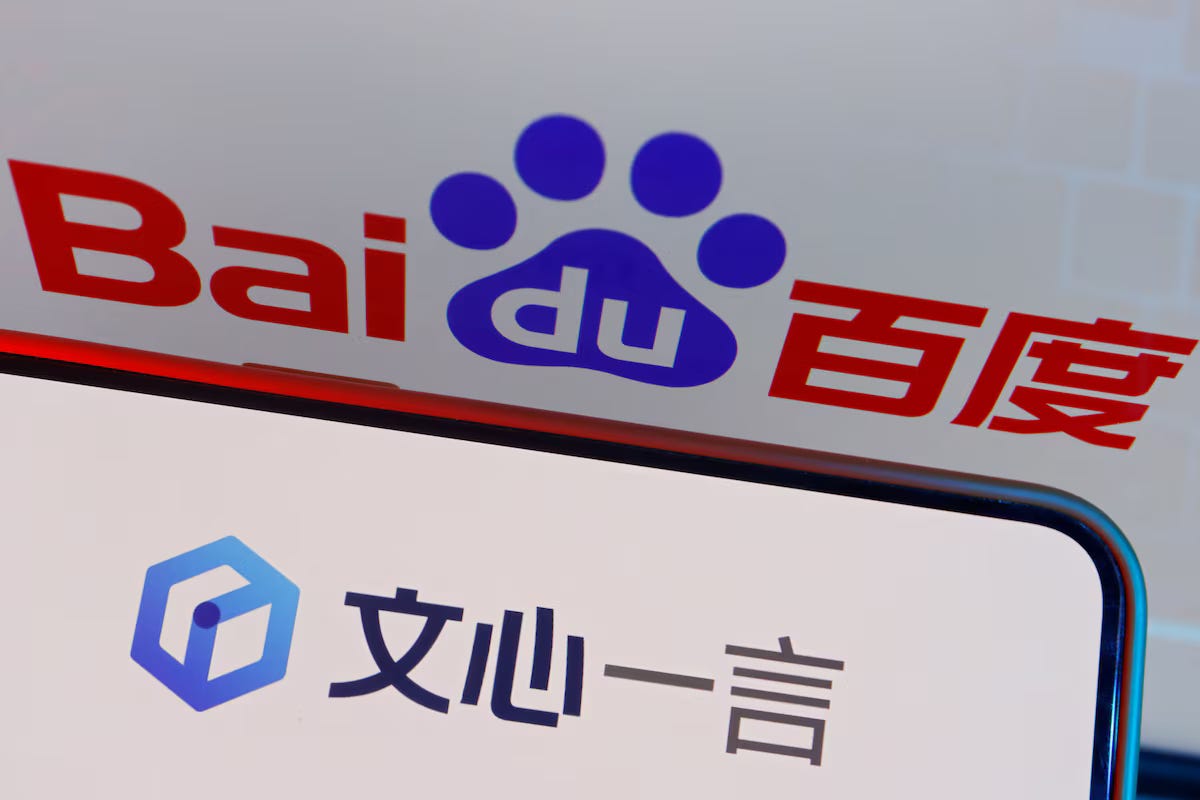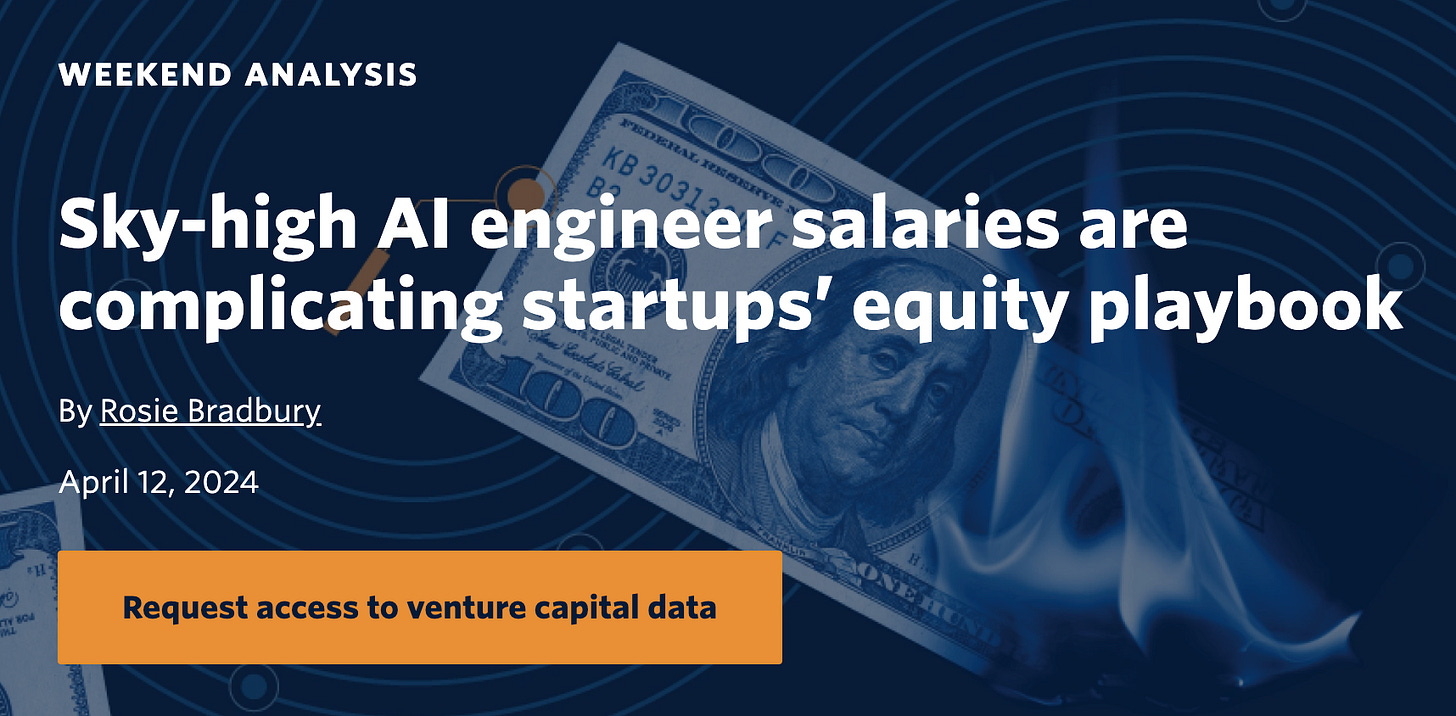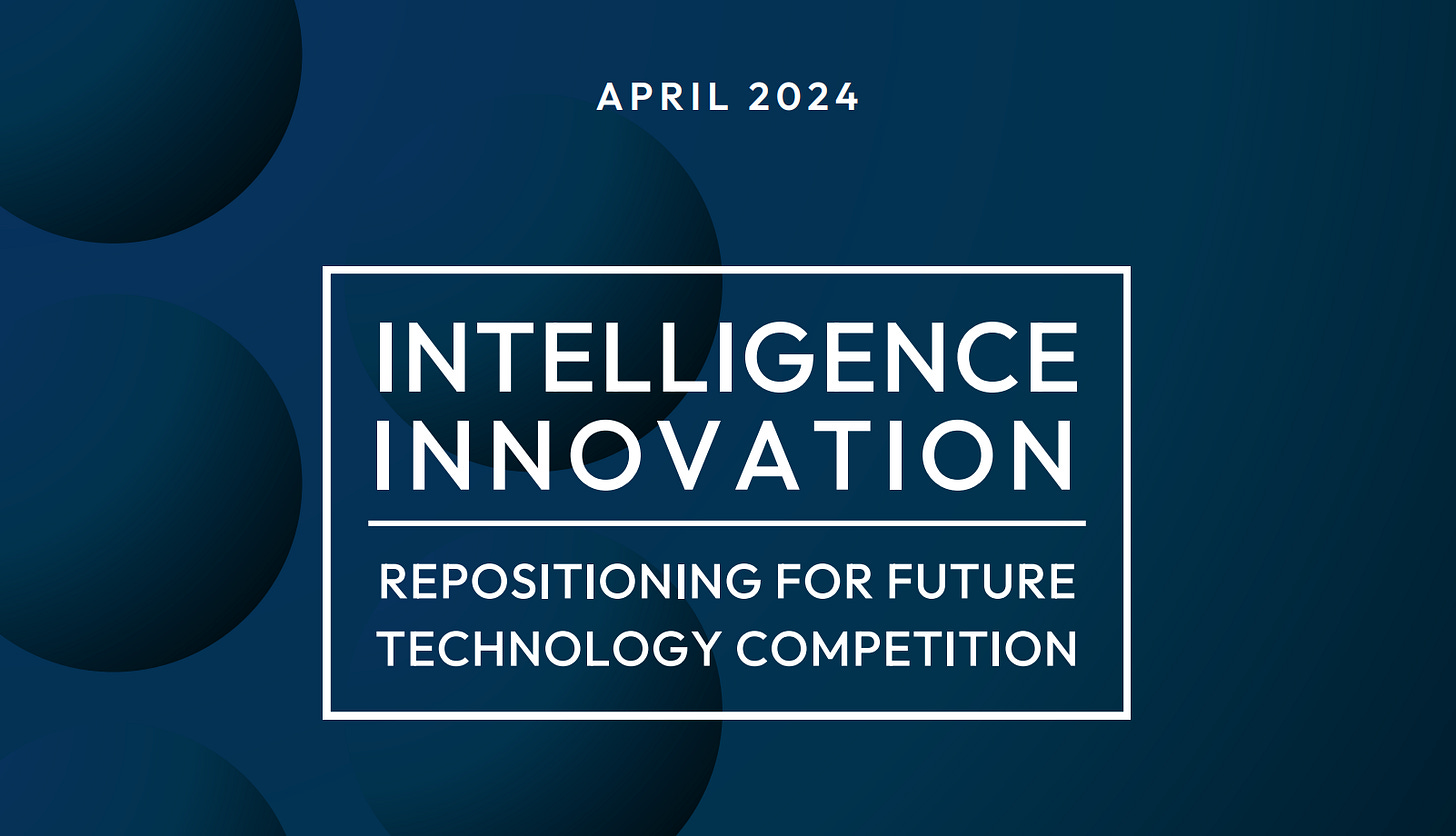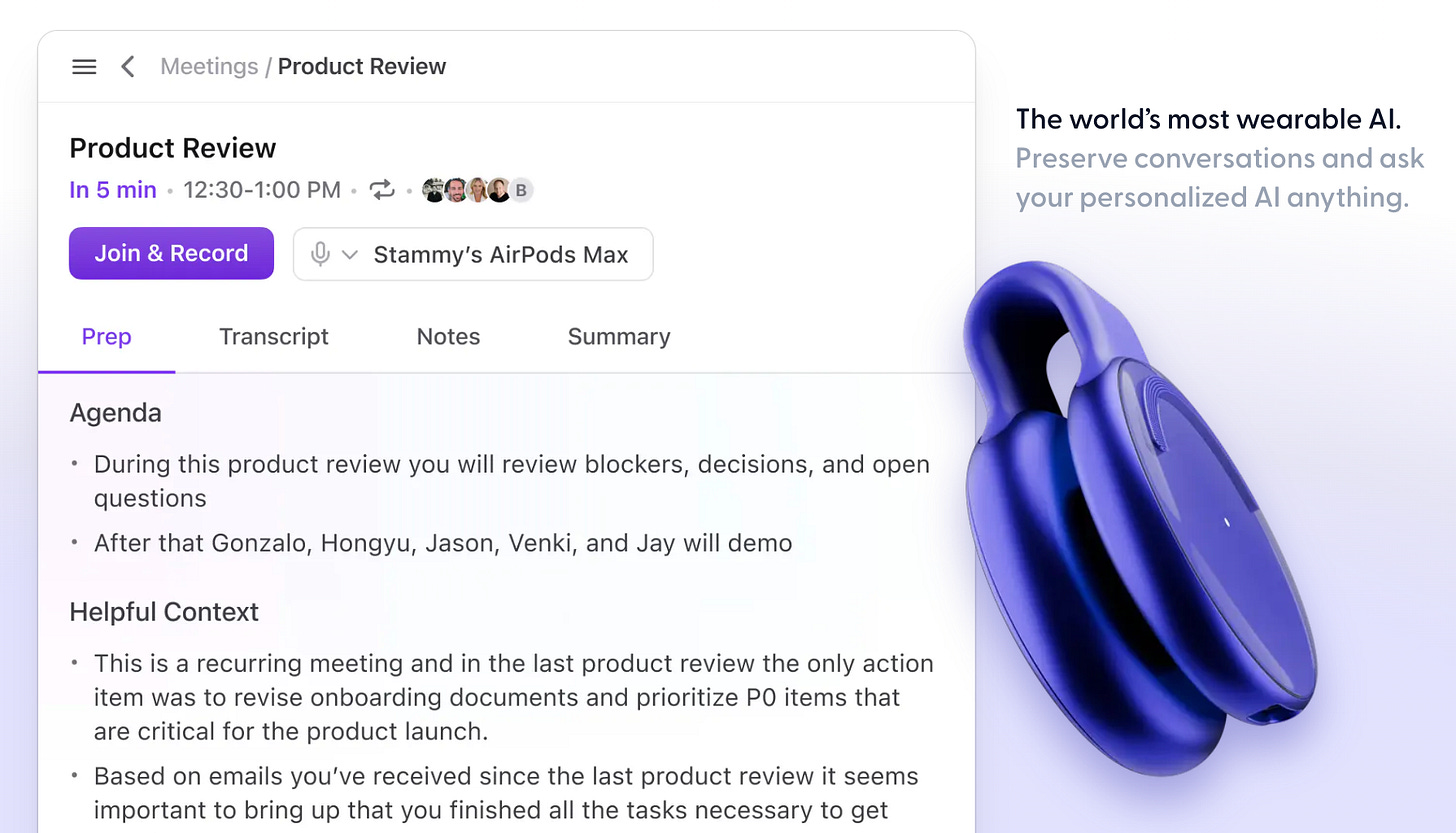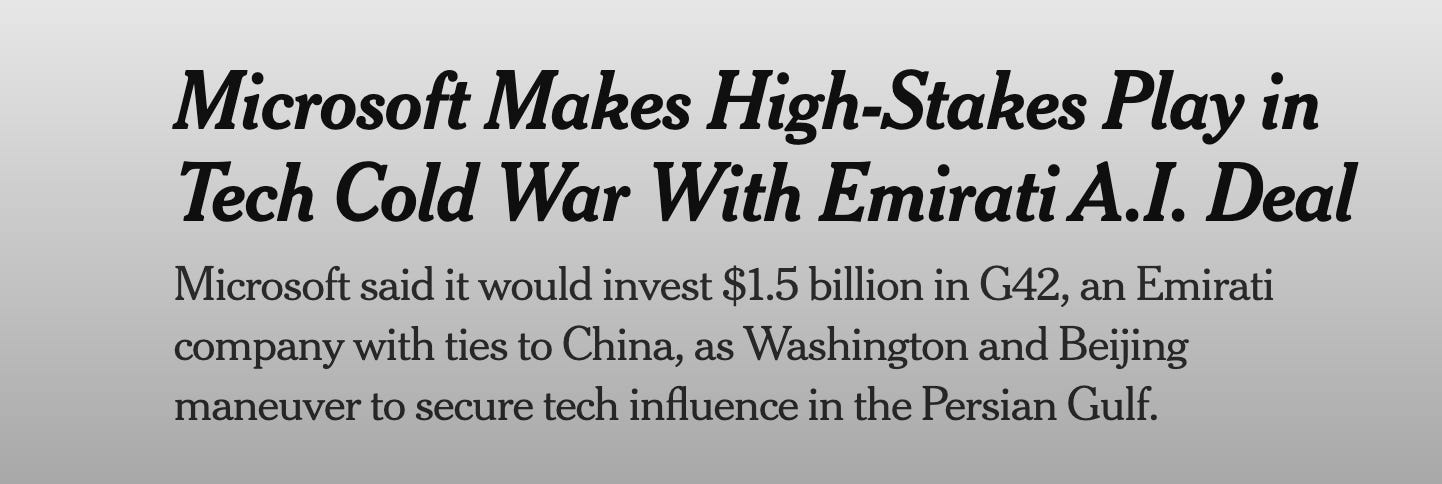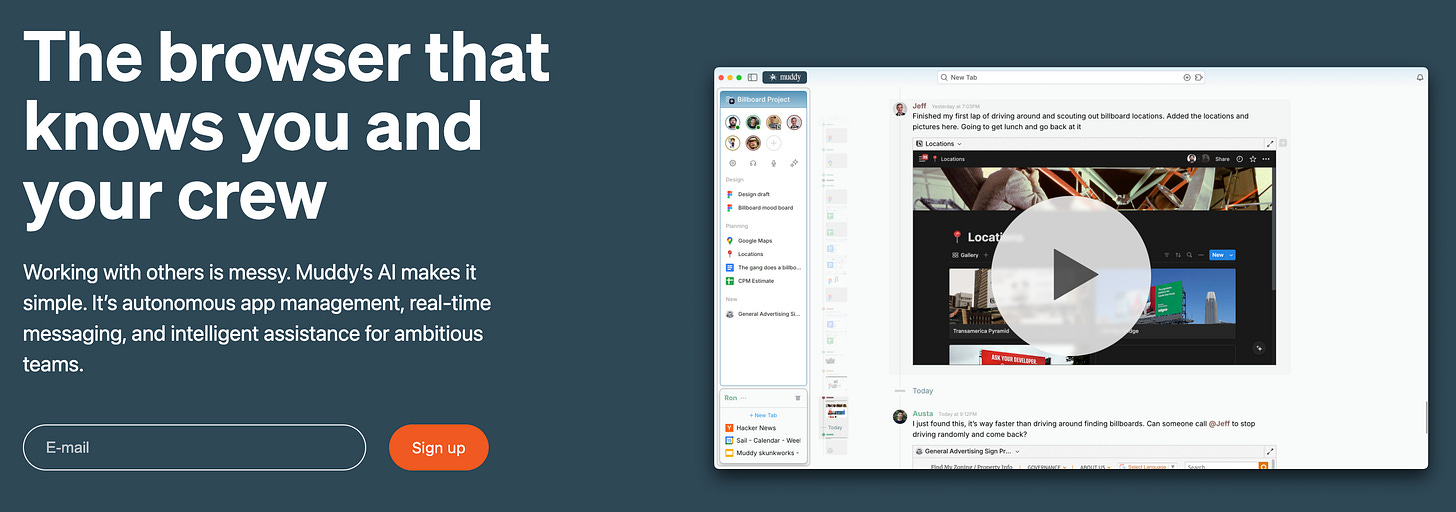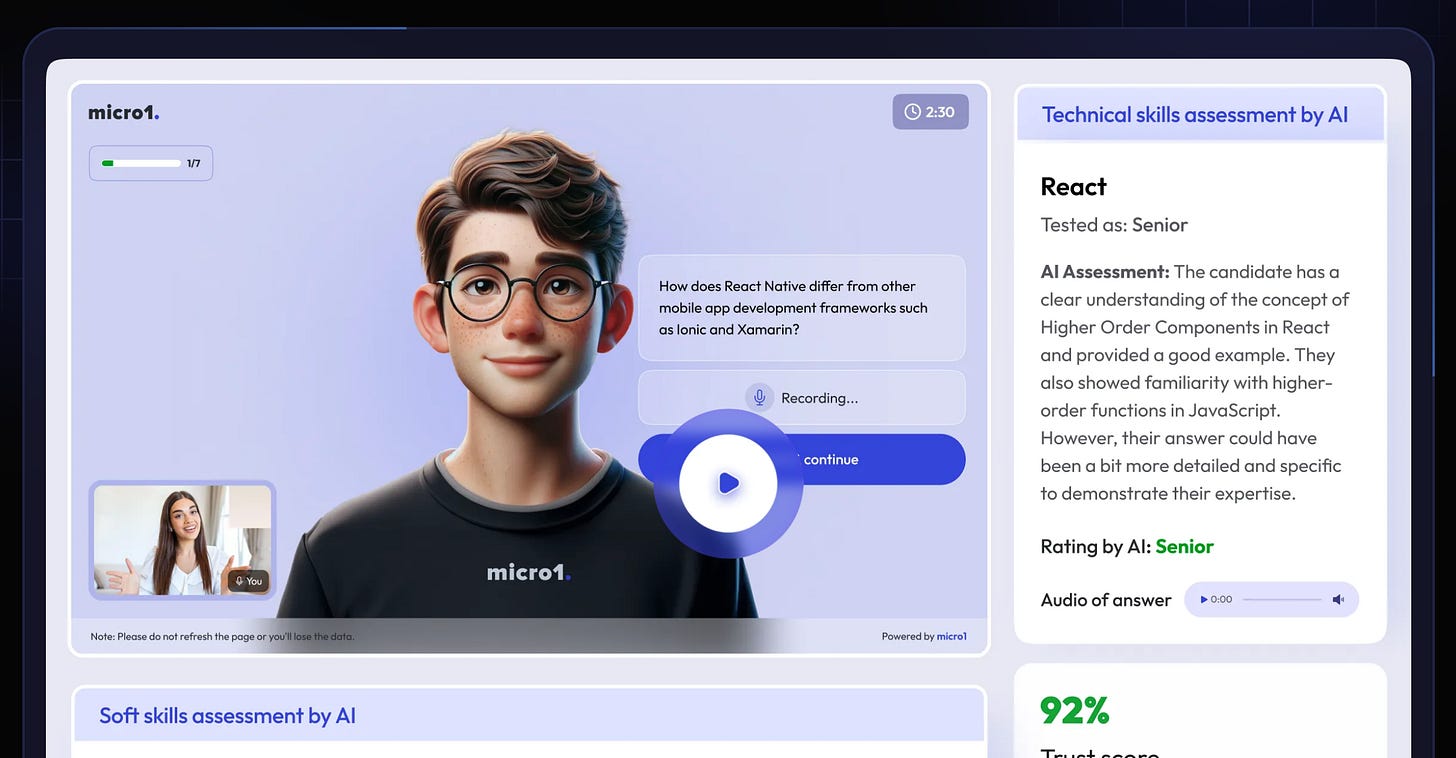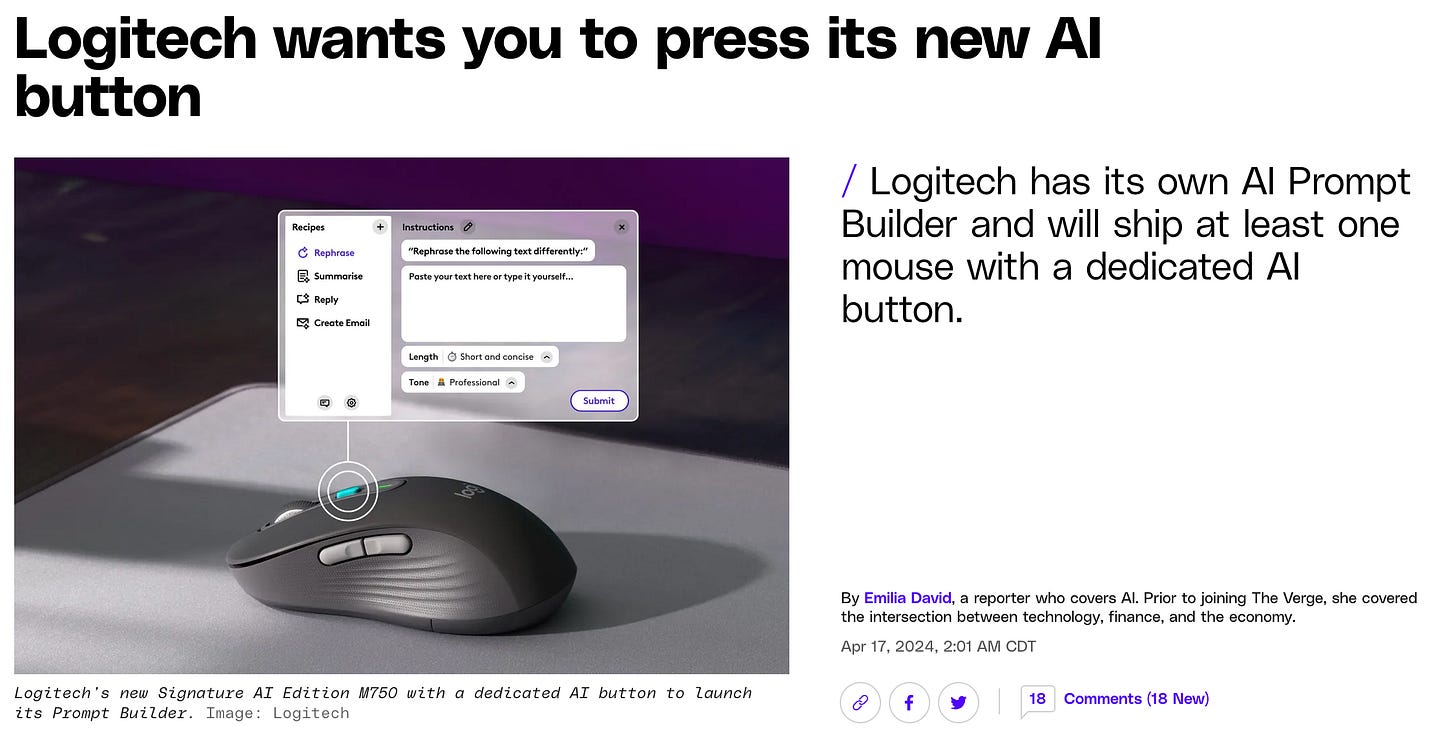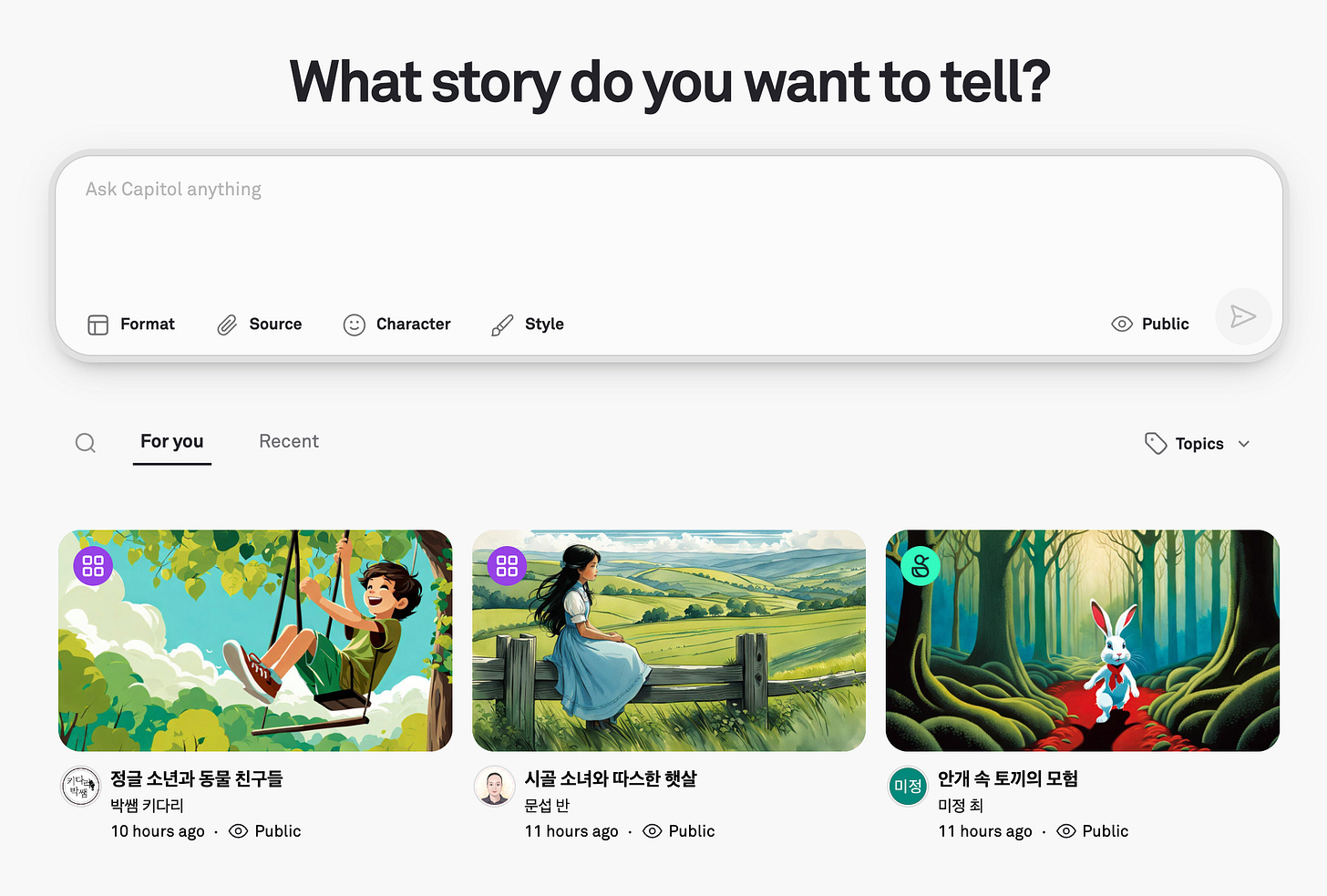AMD vs NVIDIA, Stanford AI Report, and America's Nation State Competitiveness
A few tools and news around AI.
Morning y’all!
Working our way through the week, right? I’m taking a bit of travel and some time off starting on Saturday so I’m trying to get as much as I can done this week in prep for next. Which always surprises me since I know that more work will just magically show up next week too so what’s the point of trying to “get ahead” when it’s impossible?
And I don’t say that negatively; I just find that interesting since time can go no faster or slower for any of us. It just keeps ticking forward. What we do with that time is up to us.
※\(^o^)/※
— Summer
Who did this picture? LOL. Found it pretty funny since they are cousins. And they simultaneously announced new processors on the same day. AMD announcing their Ryzen Pro and NVIDIA sharing it’s new RTX lineup.
Stanford released their annual AI index report. More open source, more investors, more adoption, and more education and research. Not surprising report. More money especially, like a16z’s new fund.
Reuters is saying that the Chinese Baidu’s chatbot, Ernie, has over 200m users. You have to hand it to those folks as they know that distribution is everything.
If you’re interested in venture capital and startup compensation, this report might be useful. I know I’m not getting paid as much as I could but I’m happy with it, for now.
This PDF is from the military and hosts recommendations on how to strengthen America’s competitiveness in terms of AI. Another fascinating read about how we’re trying to get back on the map against the bigger nation states who are doing it better.
Time’s article about how AI can heal us:
For Stray, the Berkeley scientist, there is a tantalizing prospect to an internet where positive content gets boosted. Many people, he says, think of online misinformation as leading to polarization. And it can. “But it also works the other way around,” he says. The demand for low-quality information arises, at least in part, because people are already polarized. If the tools result in people becoming less polarized, “then that should actually change the demand-side for certain types of lower quality content.” It’s hypothetical, he cautions, but it could lead to a virtuous circle, where declining demand for misinformation feeds a declining supply.
Nice idea but I think it misses the fundamental mechanics of incentives and outcomes.
Another wearable, called Limitless. I’m not into these things but you might.
From the NYT (non-paywall) we hear that Microsoft is making big deals:
Under the partnership, Microsoft will give G42 permission to sell Microsoft services that use powerful A.I. chips, which are used to train and fine-tune generative A.I. models. In return, G42, which has been under scrutiny by Washington for its ties to China, will use Microsoft’s cloud services and accede to a security arrangement negotiated in detailed conversations with the U.S. government. It places a series of protections on the A.I. products shared with G42 and includes an agreement to strip Chinese gear out of G42’s operations, among other steps.
Oh. I see.
Feel muddy is a new AI-powered browser. Not looking for a new one at the moment but I love testing out what folks feel is useful.
GPT Vetting is an interview AI assistant where you can hire engineers, faster.
A really fun interview with one of the first OpenAI AI staffers who went on to create Anthropic, a huge competitor in the GenAI space. High-level summary:
Dario Amodei, the CEO of AI firm Anthropic and a leading advocate of the scaling law hypothesis, discusses the exponential growth of AI capabilities and the potential societal implications. Amodei, who previously led the team at OpenAI that created GPD2 and GP3, believes that powerful AI systems capable of making decisions in the real world are coming in 2-5 years.
He expresses concerns about the potential misuse of these systems and the need for regulation. The speaker in the video also discusses the technological challenges and costs of building AI models capable of interacting with the real world and making decisions. They also explore the potential of AI in areas like persuasion and deception, raising ethical concerns.
They then touch upon the need for industry-led safety regulations and the importance of understanding the inner workings of AI systems. Amodei expresses unease about the power and control that AI companies hold and the need for a more democratic approach to managing this technology.
Dario continues to explore the potential risks and implications of advanced artificial intelligence (AI), focusing on the role of government in regulating the technology, the physical realities of AI's vast compute power requirements, and the economic and ethical considerations of its use. Dario discusses the geopolitical implications of AI's reliance on physical resources and the potential vulnerabilities in the supply chain. They also address the energy consumption debate surrounding AI and the need to balance its benefits with global warming concerns.
Then he raises concerns about the ownership and compensation of intellectual property used to train AI systems and the potential impact on the economy. They also discuss the potential disruptions to the economy and the need for people to adapt to a rapidly changing world.
Dario expresses hope that current policy makers are considering these issues as potential crises related to AI may be on the horizon.
Fun times.
Dedicated AI button on Logitech’s mouse? Could that be the new “mouse button 2”?
An AI cover letter generator. Simple. I like it.
Capital helps you create stories. Neat. And that’s it! Have a great day folks!
\( ゚ヮ゚)/
— Summer




